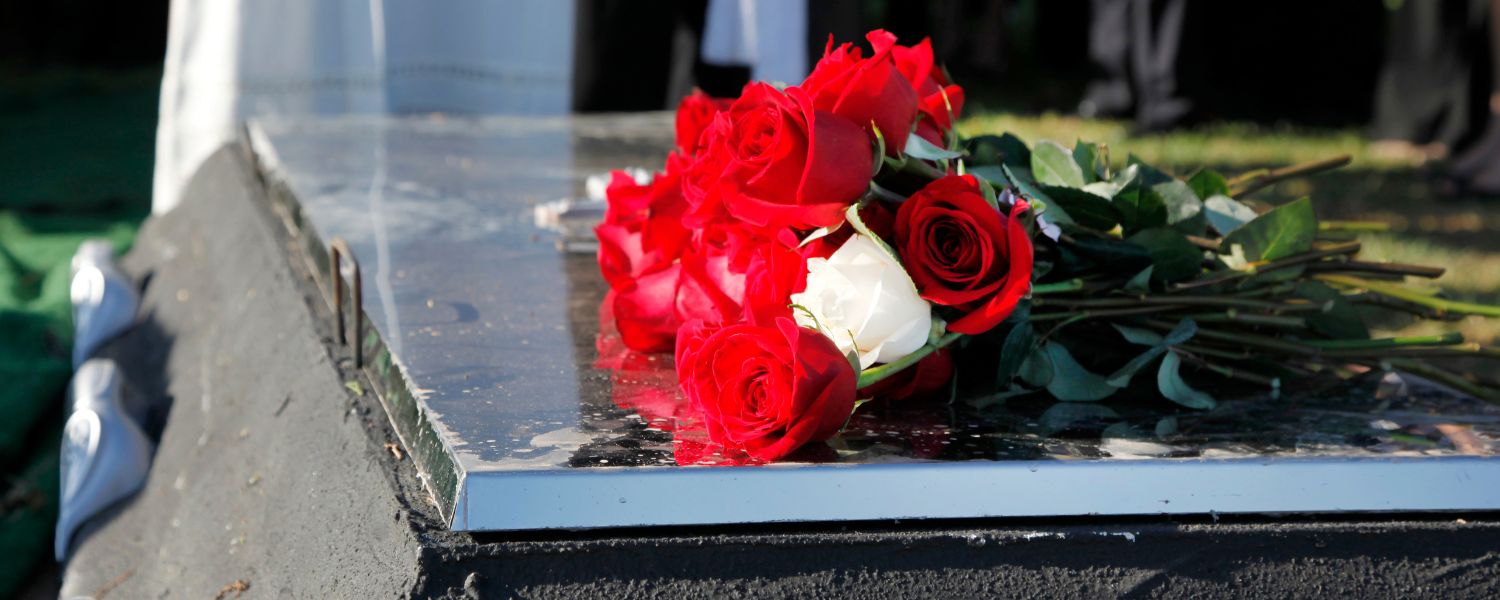In times of loss, memorial services and funeral services are beacons of remembrance and closure, offering solace to grieving hearts. While both serve to honour the departed, there exist distinct differences between them, each carrying its unique significance and purpose. Let’s delve into the nuances of memorial services and funeral services, exploring their essence, traditions, and roles in the journey of farewell.
The most significant difference between a memorial service and a funeral service lies in the presence of the deceased’s body. In a funeral, the body is usually present, either in a casket for viewing or as part of the ceremony. This physical presence often shapes the atmosphere and rituals of the event, providing a focal point for mourning and farewell.
In contrast, a memorial may or may not involve the presence of the body. It can be a gathering focused solely on remembering and celebrating the departed’s life without the physical remains being present. This absence of the body allows for a more flexible approach to commemoration, with the emphasis placed on honouring the memories and legacy of the individual rather than on the physical act of saying goodbye.
Whether you’re considering funeral services Sunshine Coast or contemplating arrangements elsewhere, understanding these distinctions can guide you in making informed decisions during a time of loss.
A traditional funeral service is a solemn ceremony conducted to honour and remember the deceased individual in accordance with established customs and rituals. These ceremonies typically involve several key components, including viewing or visitation, a formal funeral service, and the final disposition of the body.
During a traditional funeral service, family and friends gather to pay their respects to the deceased and offer condolences to the grieving loved ones. The body is often embalmed and placed in a casket, which may be open or closed for viewing depending on cultural and personal preferences. This viewing, also known as visitation or wake, allows attendees to say their final goodbyes and offer their respects.
The formal funeral service on the Sunshine Coast usually follows the viewing conducted by a religious leader, celebrant, or funeral officiant. This funeral service may include prayers, hymns, or religious songs, readings from sacred texts or poetry, and eulogies delivered by family members or close friends. The funeral service serves as a time for reflection, remembrance, and honouring the departed’s life.
Following the funeral service, the final disposition of the body takes place. This can involve burial in a cemetery, entombment in a mausoleum, or cremation, depending on the wishes of the deceased or their family. Burial funeral services often include a procession to the gravesite, where final prayers or blessings may be offered before the body is laid to rest.
In recent years, there has been a growing trend towards cremation funeral services as an alternative to traditional burial. This option provides families with greater flexibility in memorialisation, allowing for creative ways to honour the departed, such as scattering ashes in meaningful locations or holding memorial ceremonies at personalised venues.
Overall, a traditional funeral serves as a time-honoured way to honour the life and memory of the deceased, providing comfort and closure to grieving loved ones as they bid farewell to their departed loved ones.
A memorial service is a ceremony or gathering held to honour and remember the life of a departed individual. Unlike a funeral service, a memorial service does not necessarily involve the physical presence of the deceased’s body. Instead, it is a tribute to the person’s life and legacy, focusing on celebrating their memories and contributions.
Memorial services can take various forms, ranging from intimate gatherings among family and friends to more significant ceremonies open to the community. They provide an opportunity for loved ones to come together to share stories, reminisce, and pay their respects in a supportive environment.
The purpose of a memorial service is to commemorate the departed individual in a meaningful way, often incorporating elements that reflect their personality, interests, and values. This may include music, readings, photos, and personal anecdotes shared by attendees.
The purpose of both a memorial service and a funeral service is to honour and remember the life of a departed individual, but they serve slightly different roles in the grieving process.
In essence, while funeral services emphasise the process of saying goodbye and finding closure, memorial services emphasise the celebration of life and the preservation of memories. Both play essential roles in the grieving process, providing support and comfort to those who are mourning the loss of a loved one.
The timing and location of memorial service and funeral services may vary based on cultural, religious, and personal preferences. Funeral services often occur shortly after death, within a week or so, allowing for timely burial or cremation. They commonly take place in funeral homes, religious institutions, or graveside settings. In contrast, memorial services can be held any time after the death, providing flexibility for scheduling and planning. They may occur in diverse locations, from community centres to outdoor spaces that have significance to the departed.
Memorial Service vs Funeral Service: The Biggest Difference

The most significant difference between a memorial service and a funeral service lies in the presence of the deceased’s body. In a funeral, the body is usually present, either in a casket for viewing or as part of the ceremony. This physical presence often shapes the atmosphere and rituals of the event, providing a focal point for mourning and farewell.
In contrast, a memorial may or may not involve the presence of the body. It can be a gathering focused solely on remembering and celebrating the departed’s life without the physical remains being present. This absence of the body allows for a more flexible approach to commemoration, with the emphasis placed on honouring the memories and legacy of the individual rather than on the physical act of saying goodbye.
Whether you’re considering funeral services Sunshine Coast or contemplating arrangements elsewhere, understanding these distinctions can guide you in making informed decisions during a time of loss.
What is a Traditional Funeral Service?

A traditional funeral service is a solemn ceremony conducted to honour and remember the deceased individual in accordance with established customs and rituals. These ceremonies typically involve several key components, including viewing or visitation, a formal funeral service, and the final disposition of the body.
During a traditional funeral service, family and friends gather to pay their respects to the deceased and offer condolences to the grieving loved ones. The body is often embalmed and placed in a casket, which may be open or closed for viewing depending on cultural and personal preferences. This viewing, also known as visitation or wake, allows attendees to say their final goodbyes and offer their respects.
The formal funeral service on the Sunshine Coast usually follows the viewing conducted by a religious leader, celebrant, or funeral officiant. This funeral service may include prayers, hymns, or religious songs, readings from sacred texts or poetry, and eulogies delivered by family members or close friends. The funeral service serves as a time for reflection, remembrance, and honouring the departed’s life.
Following the funeral service, the final disposition of the body takes place. This can involve burial in a cemetery, entombment in a mausoleum, or cremation, depending on the wishes of the deceased or their family. Burial funeral services often include a procession to the gravesite, where final prayers or blessings may be offered before the body is laid to rest.
In recent years, there has been a growing trend towards cremation funeral services as an alternative to traditional burial. This option provides families with greater flexibility in memorialisation, allowing for creative ways to honour the departed, such as scattering ashes in meaningful locations or holding memorial ceremonies at personalised venues.
Overall, a traditional funeral serves as a time-honoured way to honour the life and memory of the deceased, providing comfort and closure to grieving loved ones as they bid farewell to their departed loved ones.
What is a Memorial Service?

A memorial service is a ceremony or gathering held to honour and remember the life of a departed individual. Unlike a funeral service, a memorial service does not necessarily involve the physical presence of the deceased’s body. Instead, it is a tribute to the person’s life and legacy, focusing on celebrating their memories and contributions.
Memorial services can take various forms, ranging from intimate gatherings among family and friends to more significant ceremonies open to the community. They provide an opportunity for loved ones to come together to share stories, reminisce, and pay their respects in a supportive environment.
The purpose of a memorial service is to commemorate the departed individual in a meaningful way, often incorporating elements that reflect their personality, interests, and values. This may include music, readings, photos, and personal anecdotes shared by attendees.
Purpose of a Memorial Service and a Funeral Service

The purpose of both a memorial service and a funeral service is to honour and remember the life of a departed individual, but they serve slightly different roles in the grieving process.
1. Purpose of a Funeral Service
A funeral service provides a structured environment for mourners to come together to say goodbye to the deceased. It offers a space for grieving, allowing family and friends to express their emotions and find closure. Funeral services often include rituals and ceremonies that help acknowledge the reality of death and the finality of the loss. They provide an opportunity for the community to offer support and comfort to the bereaved, sharing their grief and offering condolences.2. Purpose of a Memorial Service
A memorial service, on the other hand, focuses more on celebrating the life and legacy of the departed individual. It serves as a tribute to their achievements, personality, and the impact they had on others. Memorials provide a space for sharing stories, memories, and reflections, allowing attendees to honour the person’s life in a personalised and meaningful way. They offer comfort and solace to the bereaved by highlighting the positive aspects of the individual’s life and the lasting impact they had on those around them.In essence, while funeral services emphasise the process of saying goodbye and finding closure, memorial services emphasise the celebration of life and the preservation of memories. Both play essential roles in the grieving process, providing support and comfort to those who are mourning the loss of a loved one.
Timing and Location of a Memorial Service vs a Funeral Service

The timing and location of memorial service and funeral services may vary based on cultural, religious, and personal preferences. Funeral services often occur shortly after death, within a week or so, allowing for timely burial or cremation. They commonly take place in funeral homes, religious institutions, or graveside settings. In contrast, memorial services can be held any time after the death, providing flexibility for scheduling and planning. They may occur in diverse locations, from community centres to outdoor spaces that have significance to the departed.

